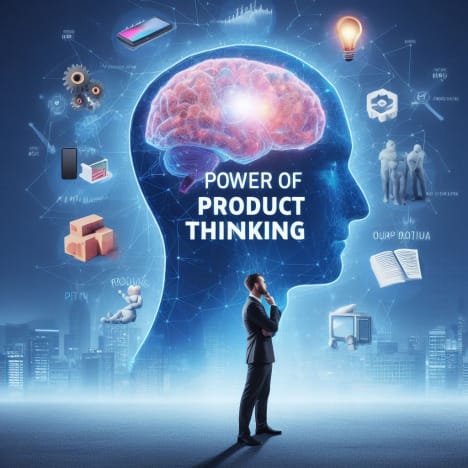Few roles are as fluid and context-driven as product management, where expectations shift based on the needs of the business. I once joined a company where the product manager was essentially a delivery manager, ensuring tasks moved through Jira on schedule. At another, the product manager was the de facto strategist, owning not just the roadmap but the business case too. In my experience, the most impactful product managers focus on driving measurable value that aligns with overarching business goals, typically revenue growth.
But what happens when you take this role into a consultancy setting? Can you still be a pure product person, or does the role evolve into something entirely different? Having worked as a product manager in both in-house and consulting environments, I’ve come to appreciate the unique dynamics and challenges of both.
In this article, I’ll explore how consulting shapes the product manager’s toolkit, the opportunities it offers, and the trade-offs it demands.
In-house roles typically have well-established processes focusing on incremental improvement towards a long-term vision. Whereas consulting demands a flexible approach to product management. The day-to-day of a consultant product manager is as varied as the projects themselves. Some assignments are short, spanning just a few weeks, where the focus might be defining a product strategy or creating concepts to secure stakeholder buy-in. Others last several months with an emphasis on delivery of something more tangible.
For example, in a 3-month project, my team established processes and developed an MVP for a digital platform. Partnering closely with engineering, we considered future scalability without losing sight of near-term goals. It wasn’t just about the software or artefacts produced in the engagement it was about enabling them to be more impactful in future.
In another 3-week engagement, myself and a designer worked on defining the vision and creating figma prototypes showcasing the potential for a new product for a slide deck presentation to the board. This involved looking at past research and the market landscape. Tight timelines made a narrow focus even more essential, again knowing which screens or user journeys not to include mattered, to ensure what we created had the depth and story behind it to do it justice. We even explored the psychology of different colours such as how yellow can trigger the release of dopamine. In this scenario, the quality of the concepts were more important than the breadth of screens designed or the readiness for engineering.
This ability to shift between strategy and execution, while aligning with evolving client needs is essential.
Another core theme within product management is user-centricity; how can consultants achieve this, especially on new or limited time-frame projects?
Of course, whilst there are many opportunities with consulting, it does bring its own set of challenges:
At its heart, product management remains consistent, whether in-house or consulting. It’s about driving alignment at the intersection of user needs, business goals, and technical feasibility. The tools we use—research, user testing, prioritisation frameworks, and iterative development—are universal. What changes is the context in which they’re applied.
True product management isn’t about rigid processes. It’s about knowing when to stick to frameworks and when to bend the rules. Over the past decade, I’ve learned that effective product managers are pragmatists. The theory is that everything should be measurable and hypotheses validated with research and engineers are brought in at the start and we all iterate together. However, we have to accept we often work in environments where theories from books are rarely perfectly applicable.
For example, a recent client I've worked with has just replatformed their front end and in the process of implementing a new analytics provider. This means any new features launched in this time, we haven't got in depth tracking so we can't consistently calculate the value. Despite this, we still made the decision to roll out a new capability to further markets. Additionally, there's value from other avenues beyond engagement metrics such as brand positioning, which is much harder to quantity but still important. Especially in B2B SaaS products, the end users aren’t always those with the purchasing power.
Similarly, from a delivery perspective when I was shipping an AI feature with a small team, we didn't bother story pointing or writing detailed jira tickets. I aimed to remove bureaucracy or any other barrier that would slow the team down. I would ask myself, what will we do differently if an engineer guesses a ticket is a 5 story point or 8? Not all changes are successful and documentation can easily be written up once the solution is complete, and far more readable in a notion page than across 20 different jira tickets. I'm a firm advocate that if running the processes or frameworks take time and don't influence next steps - it's not worth it. We should apply the JTBD to our own workflows too and not just to the product.
Some scenarios do warrant a structured workshop followed by formal documentation. Other times, you move quickly with a few Slack messages and a rough sketch. It’s about balancing processes with momentum. This adaptability separates purist product managers, who follow processes to the letter, from seasoned product managers who view processes as tools rather than constraints. We should empower capable teammates to focus on doing what they do best.
Whether you’re a product manager considering a move into consulting or already navigating its demands, it’s worth reflecting on how the fast-paced, high-impact nature of this work might shape your own approach to product management. How do you balance structure and flexibility in your role? What has your experience been—have you found consulting to be a rewarding challenge or a difficult balancing act? The lack of long-term involvement can be a challenge for those who thrive on seeing a product through its entire lifecycle and a stable stakeholder ecosystem. However, it also offers unparalleled opportunities to broaden your skill set, work across industries, and deliver impactful solutions in a condensed timeframe.
For me, the key takeaway is that product management in consulting isn’t about being less of a “pure” product person. It’s about adapting your core skills to new environments and constraints, and ultimately, delivering value in ways that resonate long after you’ve moved on to the next challenge.








